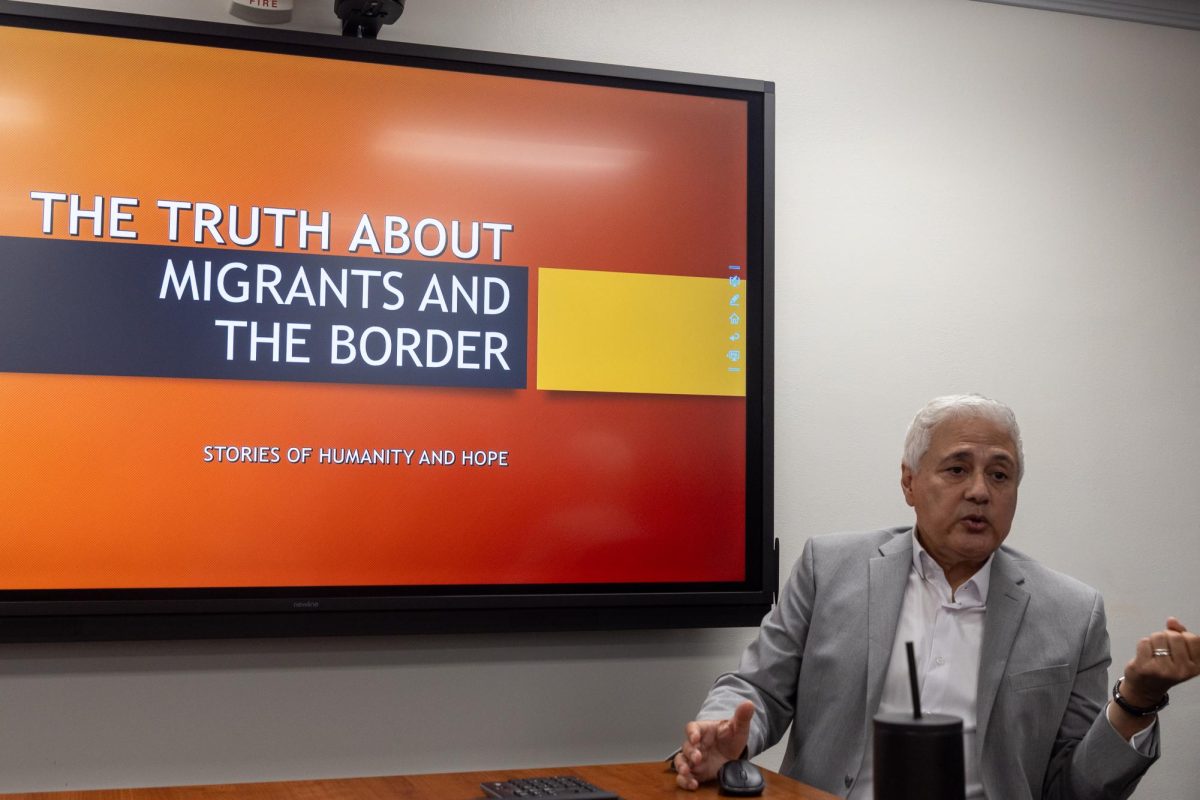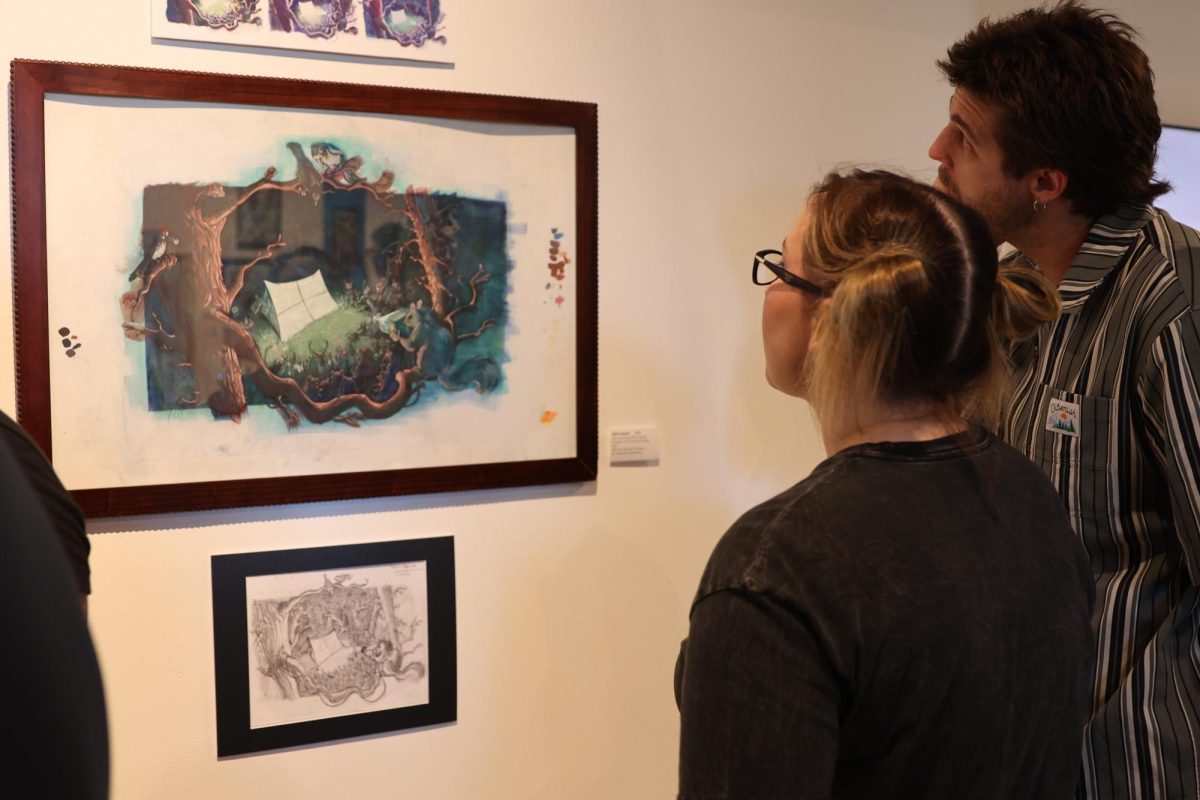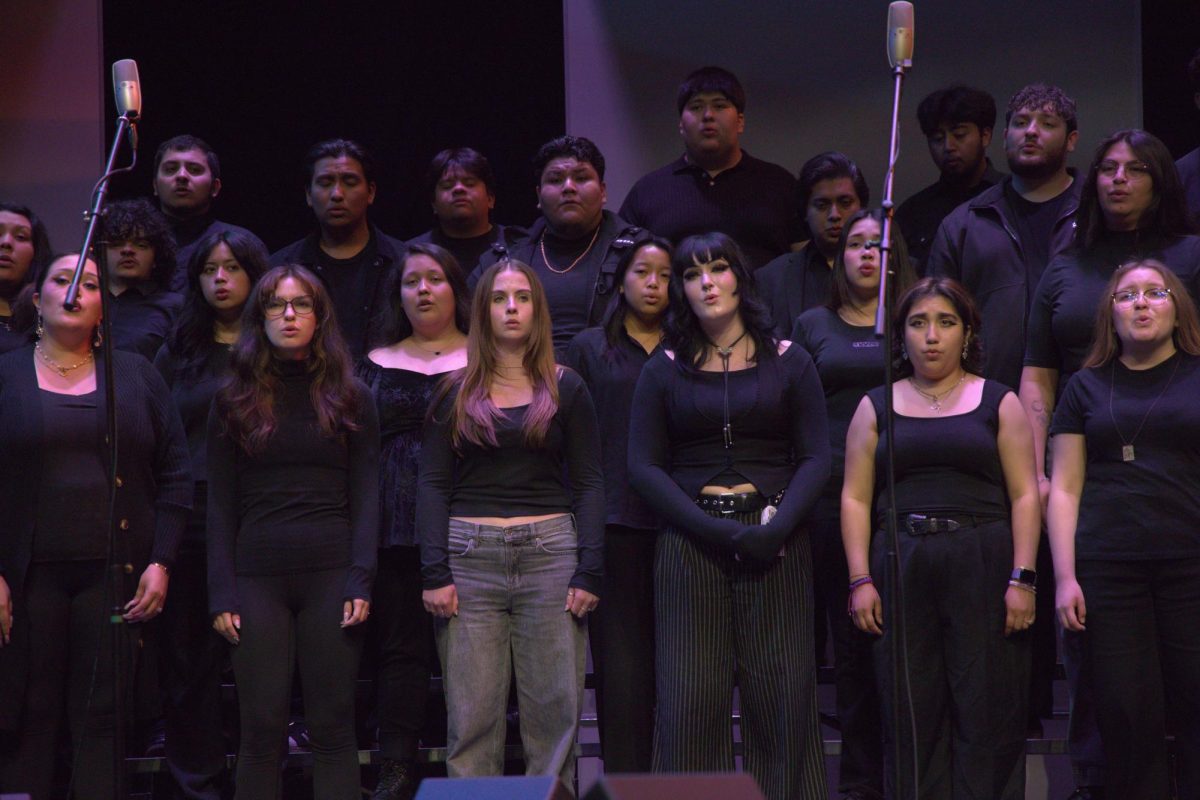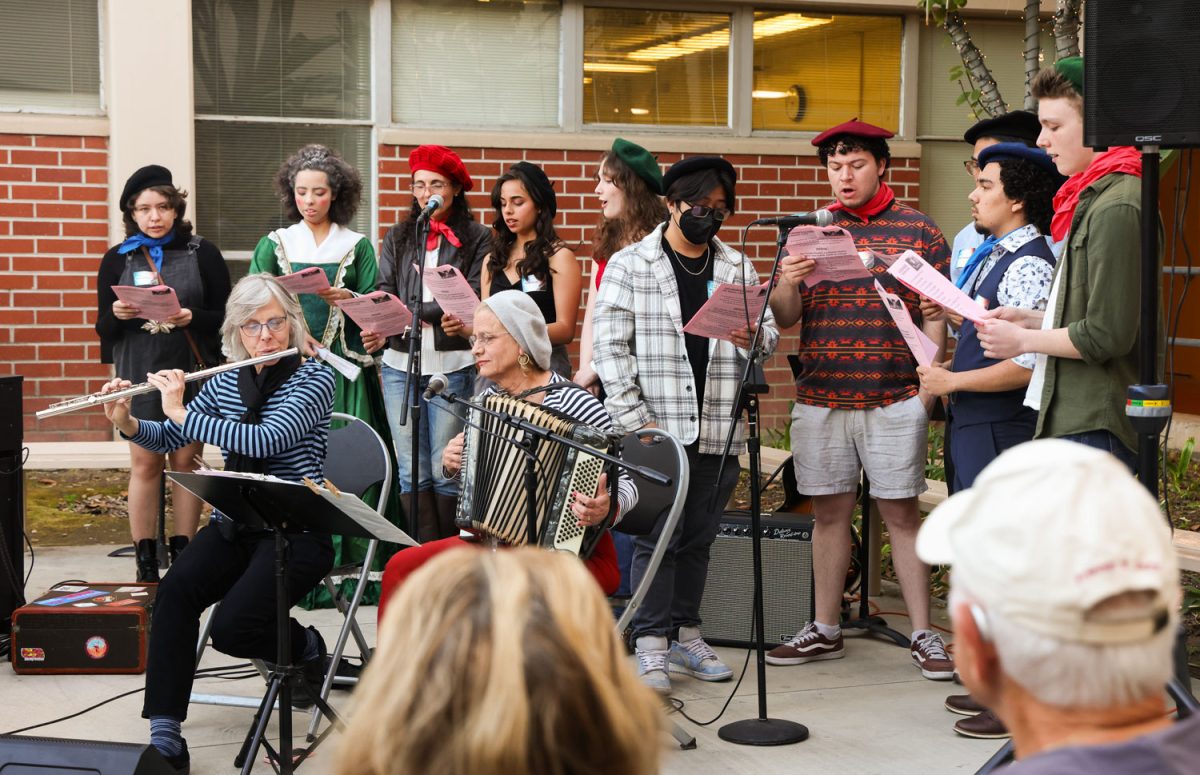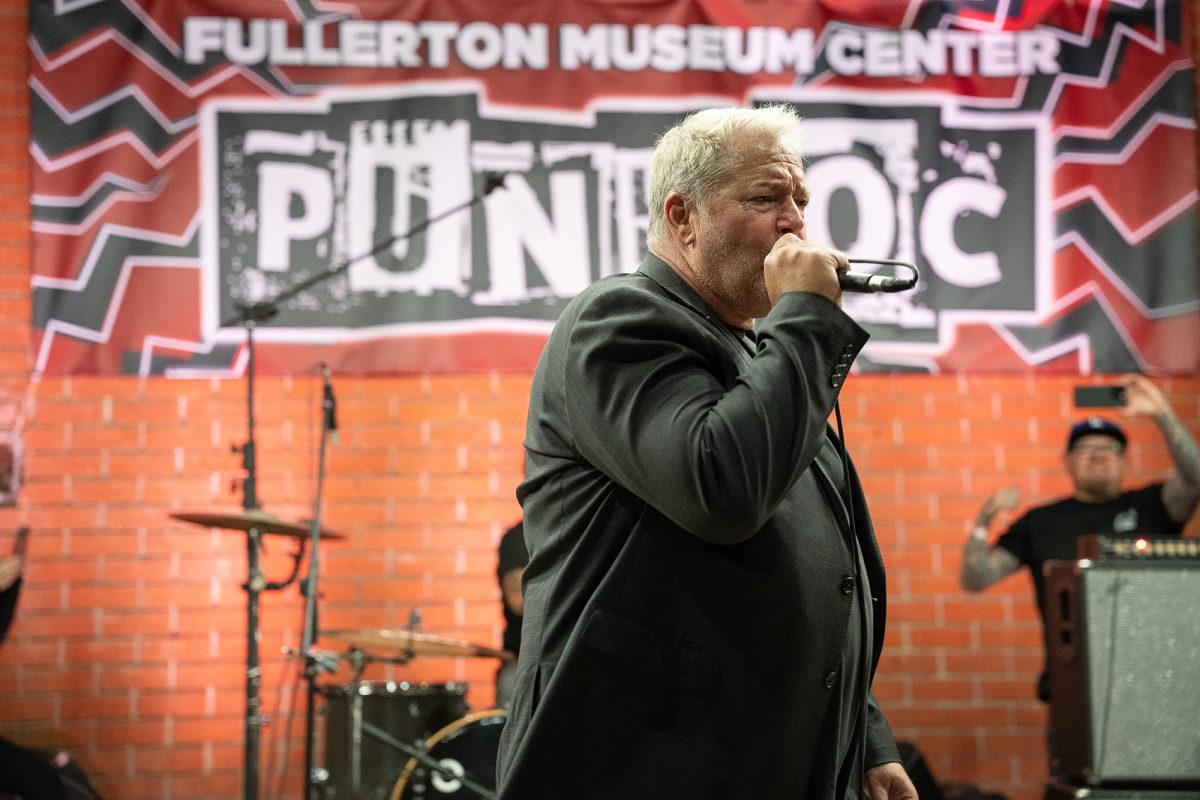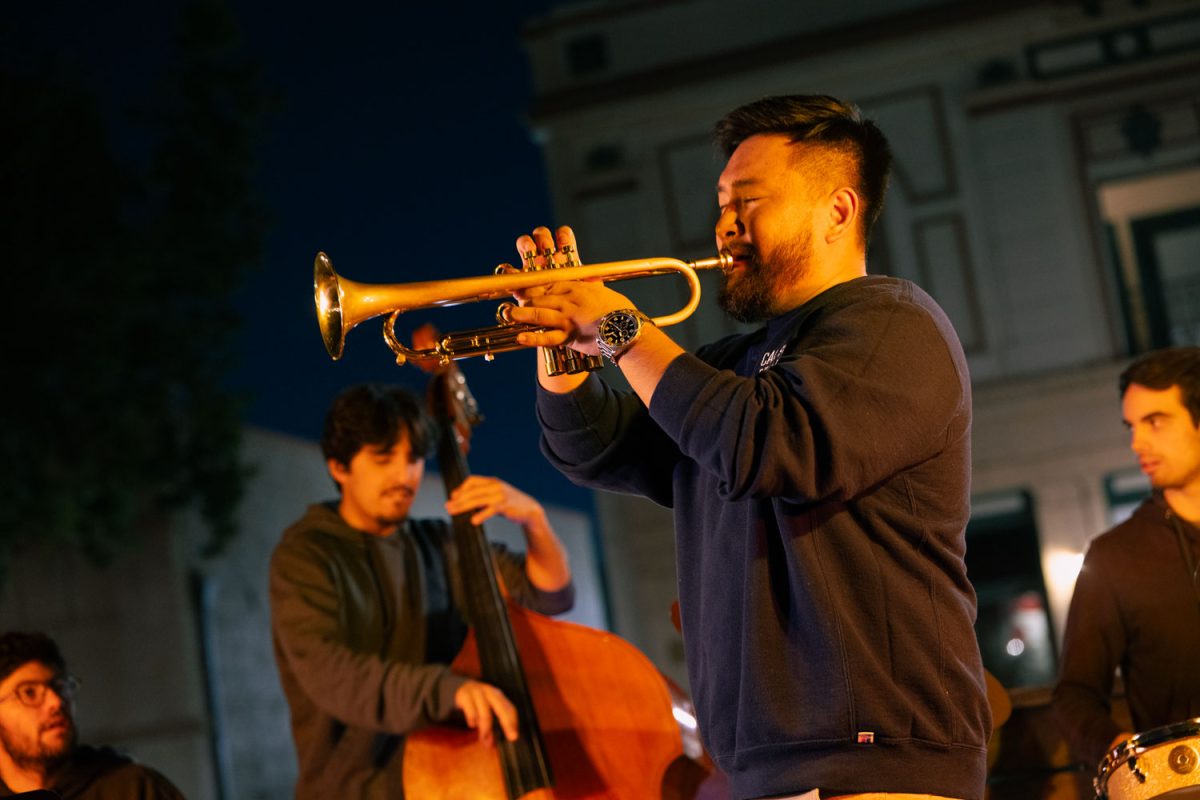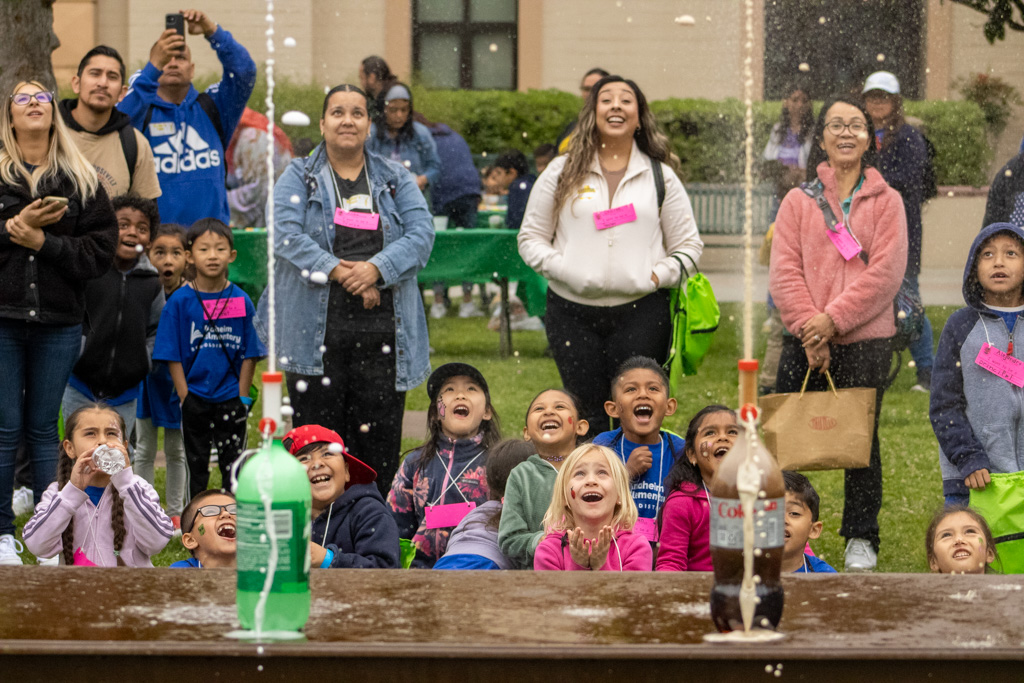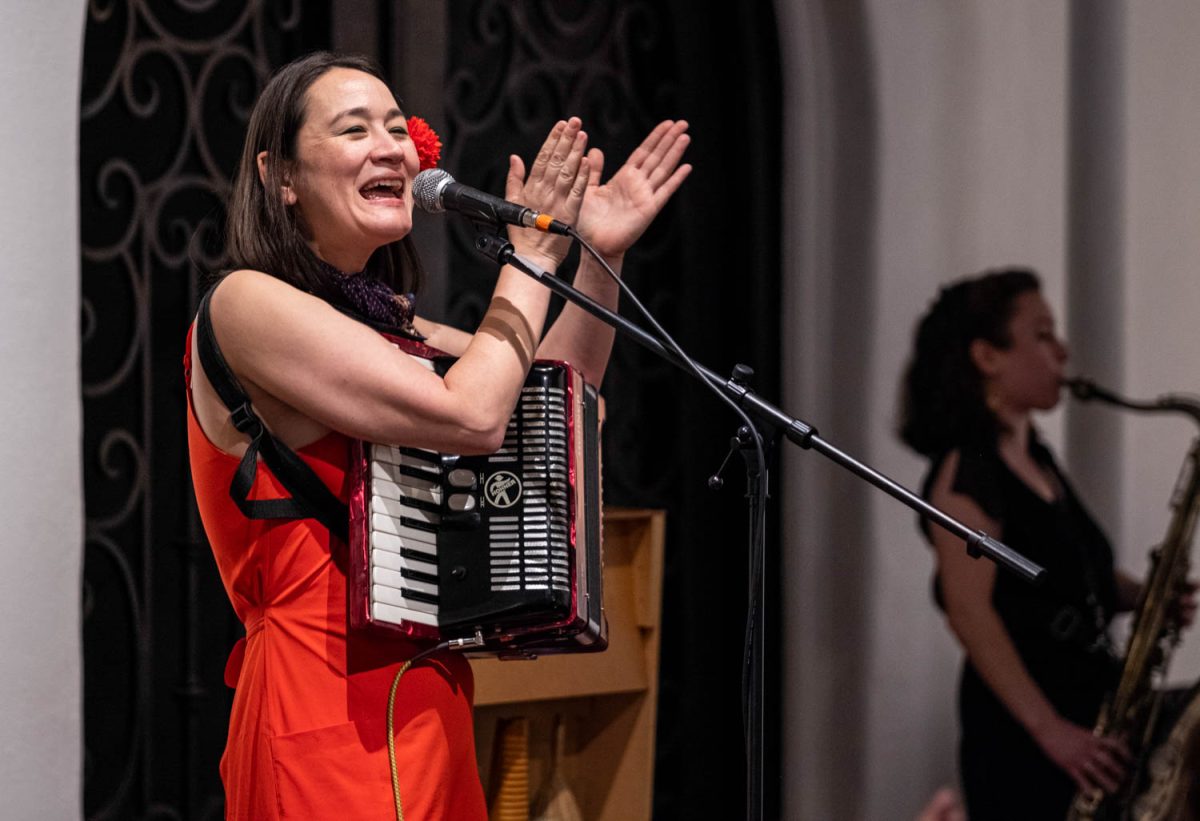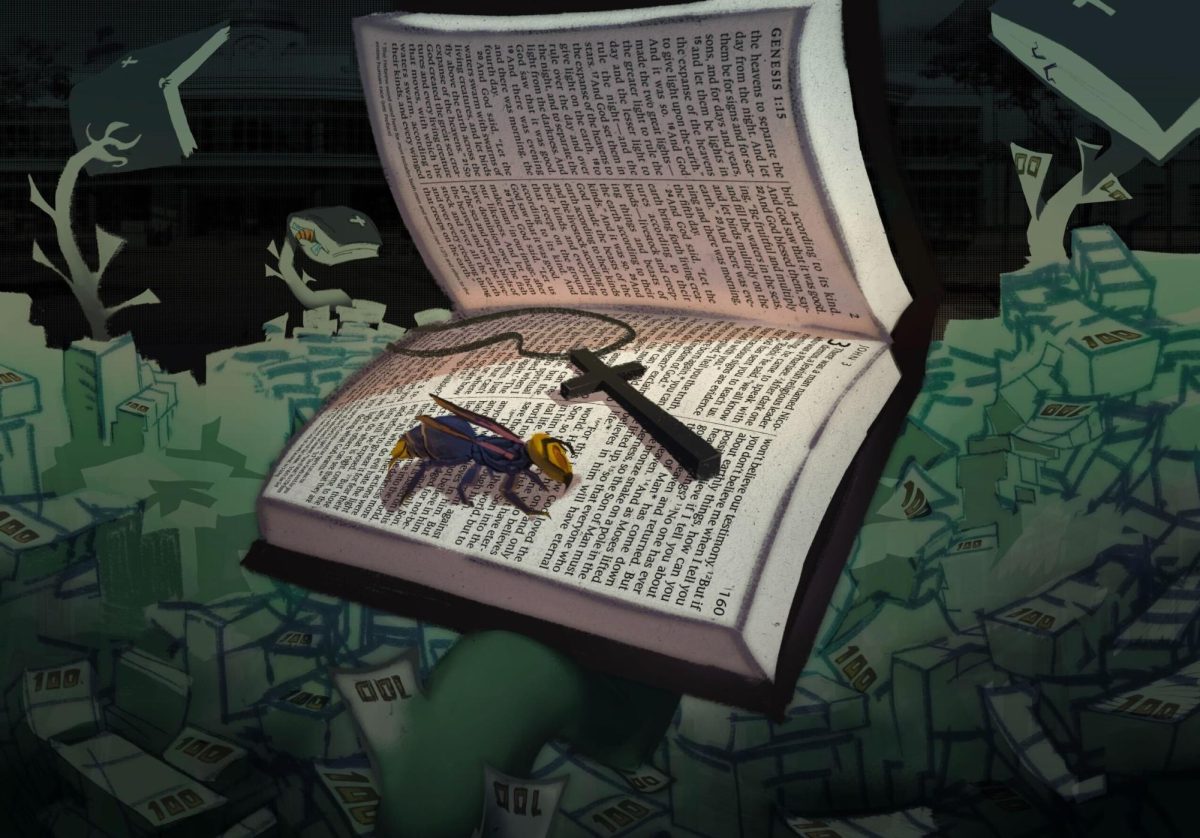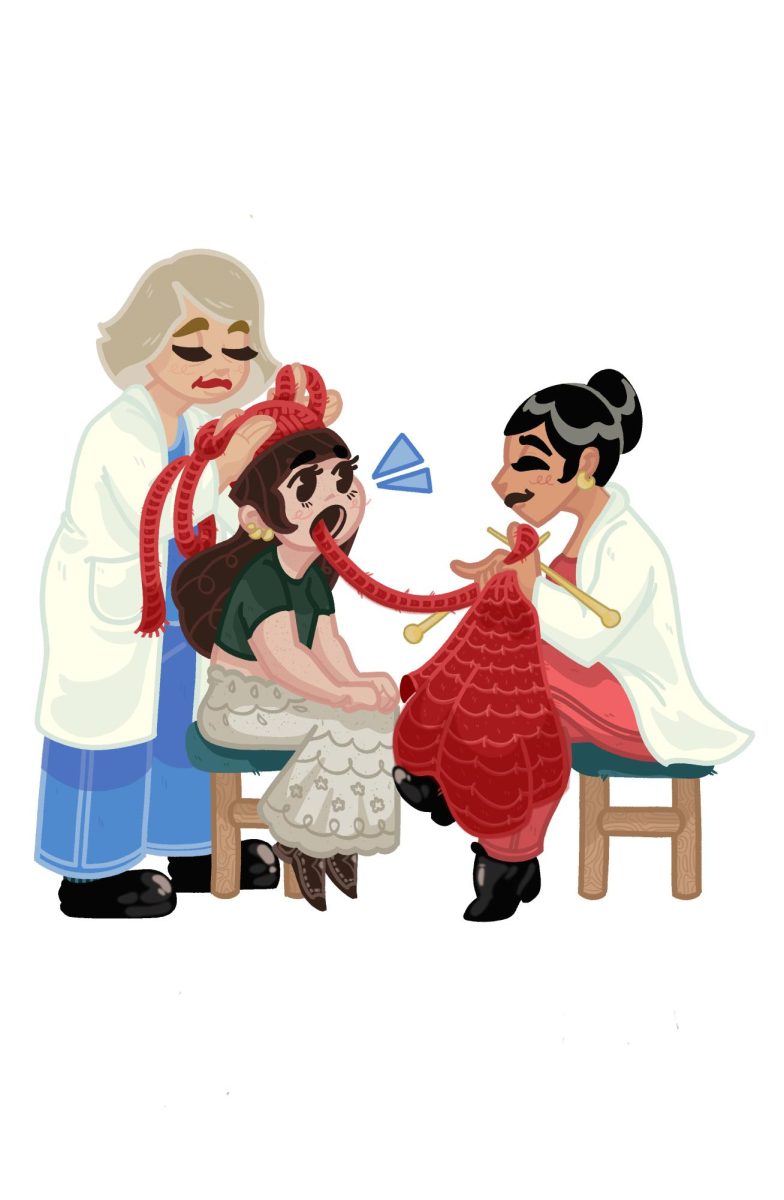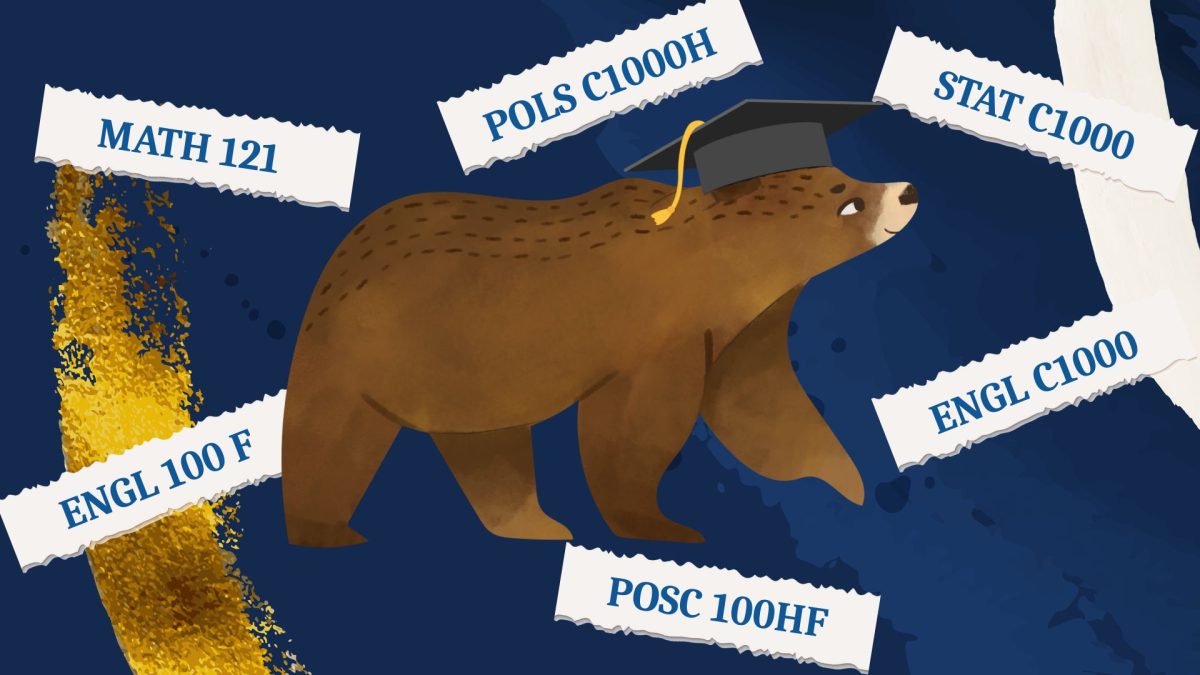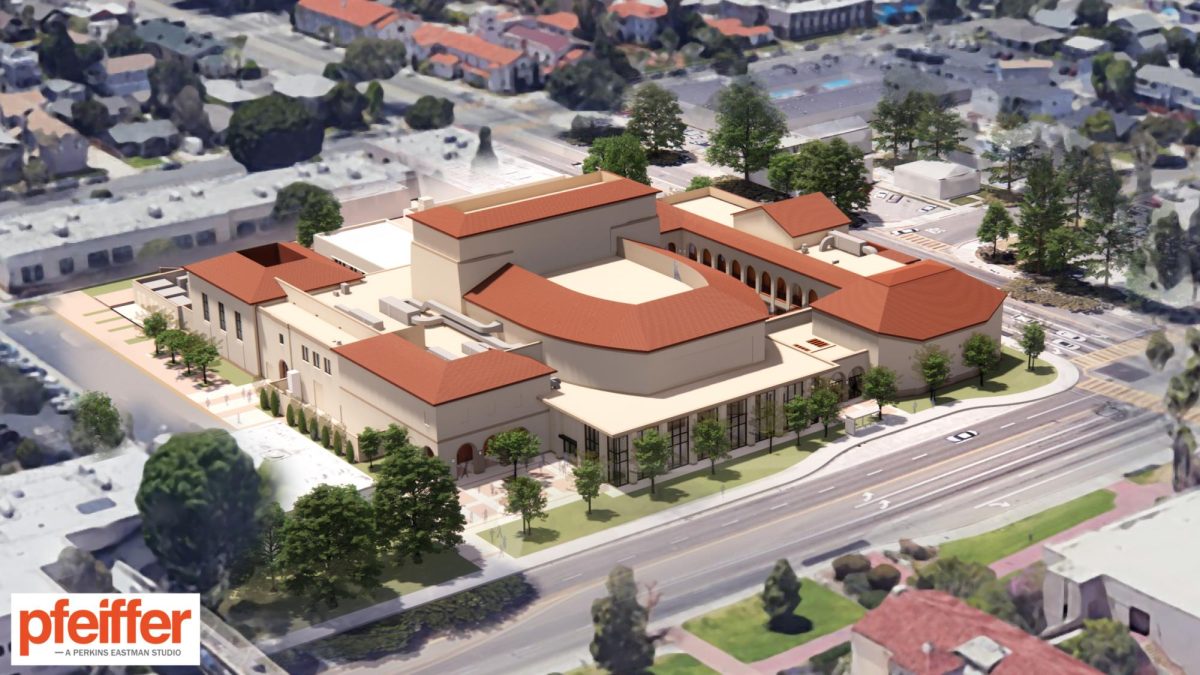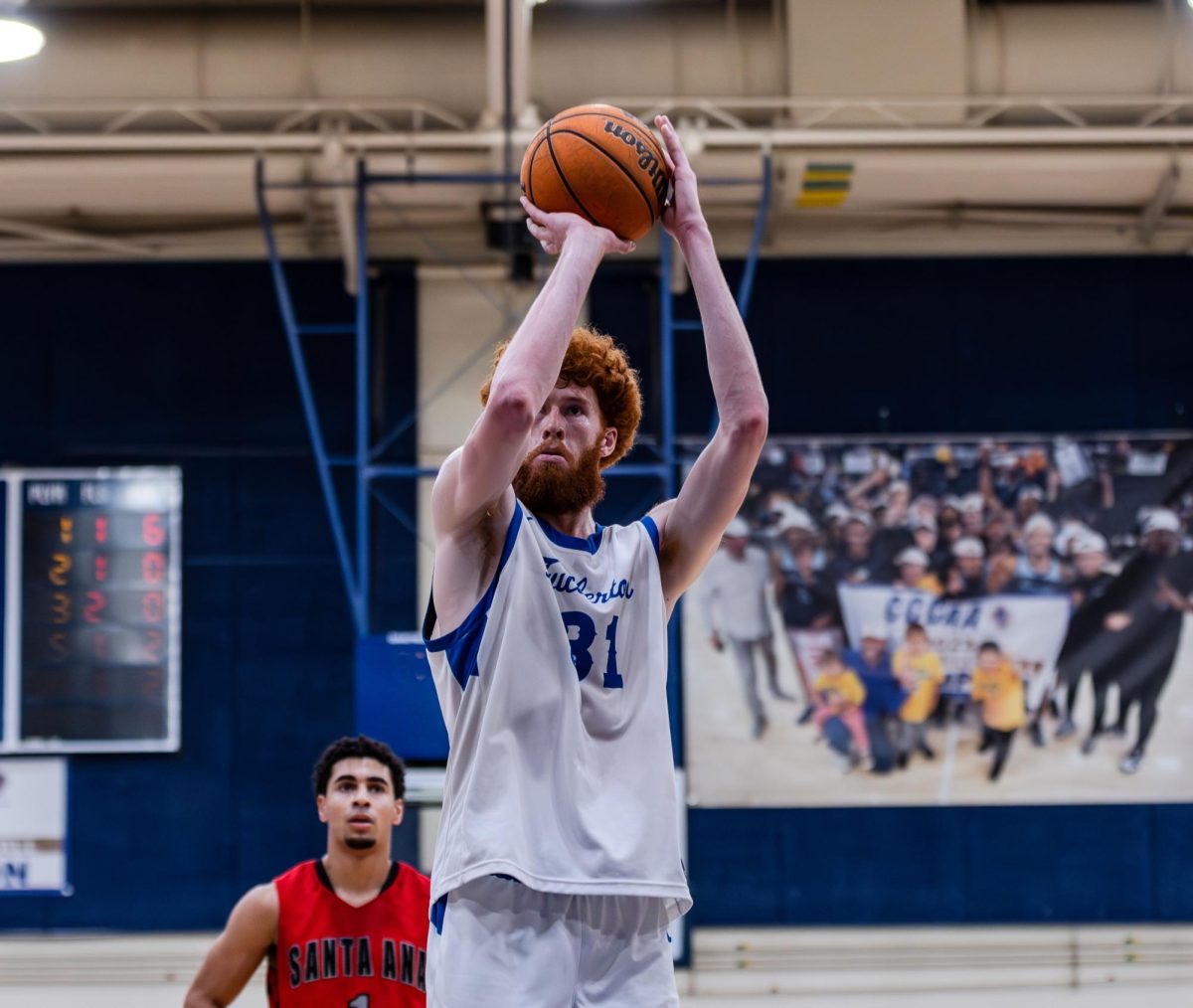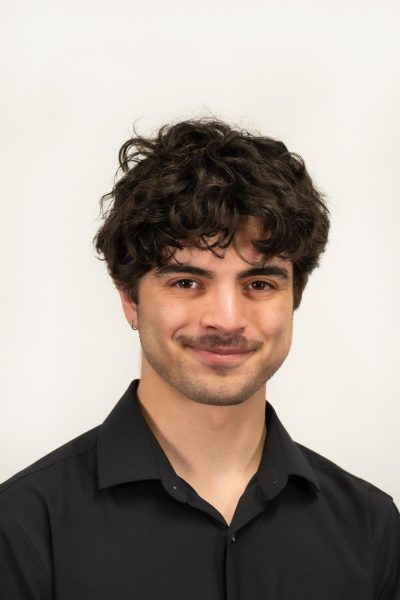In the week leading up to Cesar Chavez Day, a day celebrating the historically significant labor leader and civil rights activist Cesar Chavez, Fullerton College President Cynthia Olivo hosted a film screening, presentation and conversation with documentary filmmaker David Damian Figueroa.
In the president’s office on March 26, a packed meeting room hosted a presentation and screening put together by Figueroa. The arrangement, titled “The Truth about Migrants and the Border,” went over the topic surrounding illegal immigration.
Figueroa discussed what aspects of life displace people, such as poverty, violence and persecution, along with the role the United States plays in that displacement.
He spoke of his volunteer group, the Green Valley-Sahuarita Samaritans, which travels to the border, taking water, food and emergency medical supplies for migrants and asylum seekers. They also conduct water drops, where the volunteers leave gallon jugs of water along known migrant foot paths.
“When we are at the border we always say ‘Welcome to the United States of America,’ because we want everybody to feel that not only are we there to give them a hug, food, and water, but we also want them to know that we respect their journey,” Figueroa said. “I feel very honored to be the first person that they greet in the United States, and I want to be the person that says, ‘Welcome to America,’ because I really mean it.”
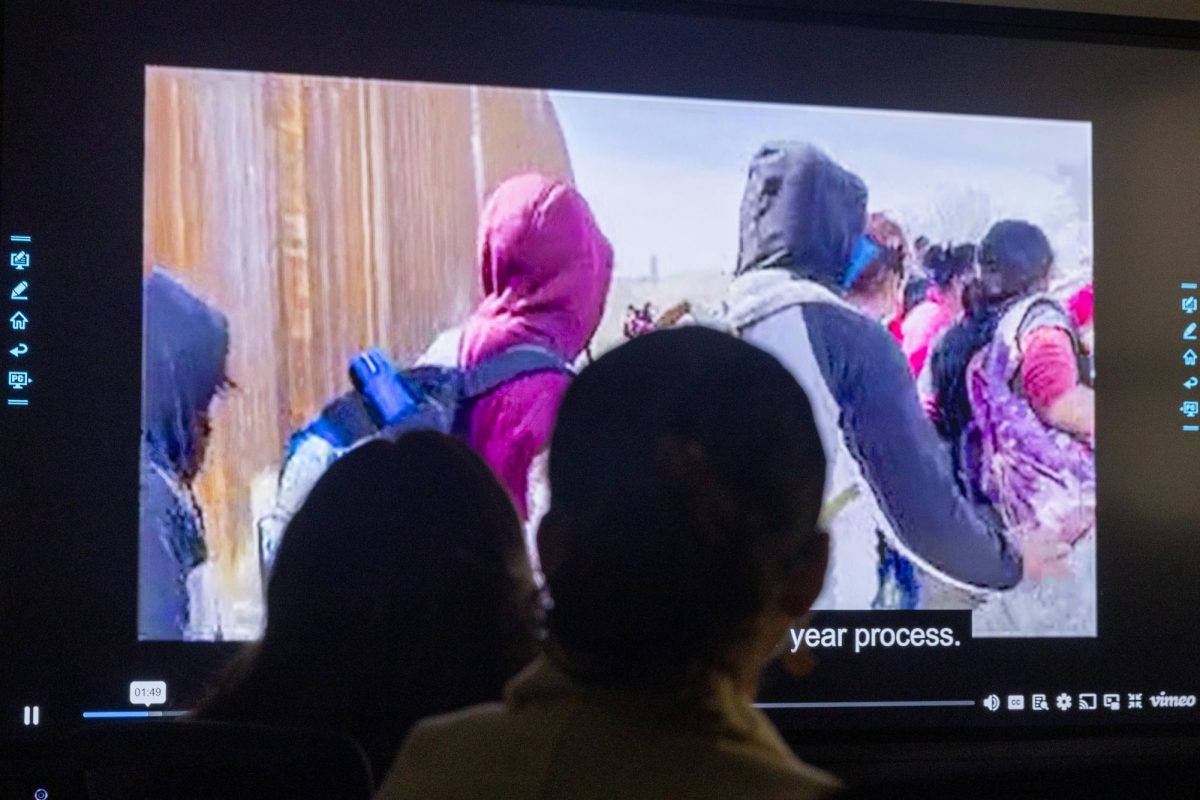
The film screening consisted of two documentaries, both directed by Figueroa. The first, titled “Shura,” follows the backstory and a day in the life of Shura Wallin. Wallin, who co-founded the Green Valley-Sahuarita Samaritans, is over 80 years old and spends her days assisting at migrant shelters in southern Arizona and at the Mexican border. The film highlights the struggles that she, the volunteers and migrants face with extreme weather conditions, lack of supplies and encounters with border patrol and militia groups.
The second film, titled “They Call Me the Cross Man,” followed Alvaro Enciso’s mission to memorialize migrants who had died in the Sonoran Desert. Using GPS coordinates to locate the site where one’s remains were found, Enciso plants wooden crosses to honor those who lost their lives on their journey across the desert.
The International Organization for Migration named the U.S.-Mexico Border the deadliest land route for migrants in the world, accounting for 686 migrant deaths in 2022. This number is likely higher due to lack of data leaving many unrecorded.
The film screening ended with a conversation with Figueroa. Attendees shared their personal experiences with each other, praising the two films’ ability to address disparities that immigrants face through the border and in American society. Many expressed the struggles that they themselves, close friends and family have faced during a polarizing time in immigration policy.
Figueroa spoke on his purpose as an activist, referencing his work as the vice president of the Mexican American Legal Defense and Educational Fund. Throughout this, he emphasizes that his message is not solely a political one. He says his hope for viewers is to humanize migrants crossing the border.
“What I believe, and what I want people to see through this project, is that migrants are human beings. They’re people too, just like everybody else, and that they have feelings, hopes, dreams and all of that, just like we do,” Figueroa told The Hornet. “The only thing that’s different is probably the color of our skin and a border that separates us.”

